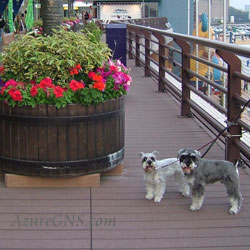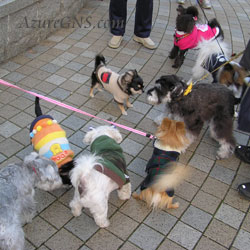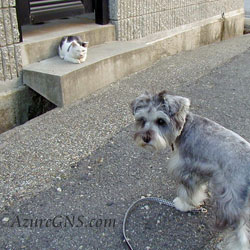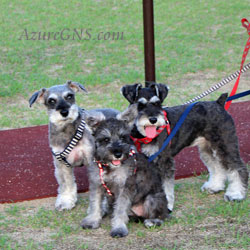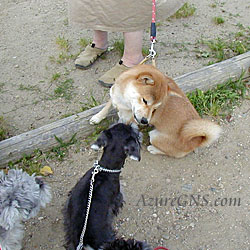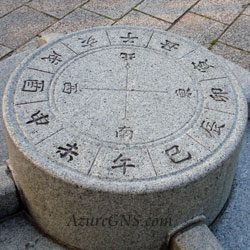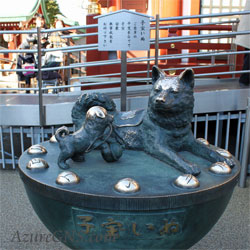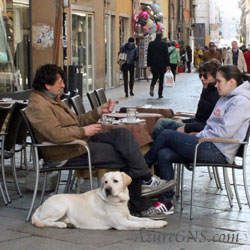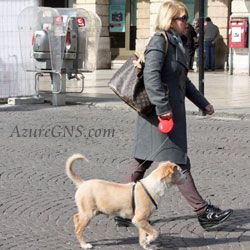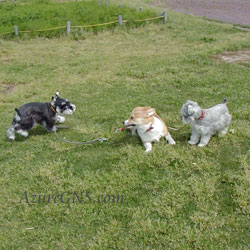(11月1日)
Inu-no-hi:
Dog Day
(November 1st)
●犬 a dog
●子犬 a puppy
●雄犬 a male dog; a he-dog
●雌犬 a female dog; a she-dog; a bitch
●保護犬 a rescued dog
●捨て犬;野良犬 a stray dog; an abandoned dog; a homeless dog
●野犬 a wild dog
●迷子犬 a lost dog
●ペット a pet
●ペットショップ a pet shop; a pet store
●ペットフード pet food
●ペットホテル a pet motel; a pet hotel; pet accommodations
●ペットロス pet loss; pet grief
●動物愛護 animal protection; animal rights; animal welfare; animal protection
●動物愛護団体 an animal rights group; animal rescue; humane society
●動物愛護管理法 Law of Humane Treatment and Management of Animals
●動物愛護週間 Be Kind to Animals Week
●殺処分 (安楽死)euthanasia; (家畜)culling; slaughtering; killing
●殺処分する (to) euthanize; (to) put down
●保健所 a (public) health center; a health care center
●アニマルシェルター an animal shelter
◆一般社団法人ペットフード協会によると日本全国の犬の推計飼育数は約9,000万匹だそうです。
According to the survey by Japan Pet Food Association, the estimated number of pet dogs in Japan is around 90 million.
◆調査が始まった1994年(平成6年)から初めて、2017年(平成29年)にペットの猫の数に抜かれましたが、依然として犬は大人気です。
Dogs are still very popular as pets though the estimated number of cats kept as pets exceeded dogs in 2017 (Heisei 29th yr) for the first time since the survey began in 1994 (Heisei 6th yr).
◆1987年(昭和62年)、ペットフード協会は毎年11月1日を「犬の日」に、2月22日を「猫の日」に制定しました。
Japan Pet Food Association designated November 1st as “Inu-no-hi (Dog Day)”, and February 22nd as “Neko-no-hi (Cat Day)” in 1987 (Showa 62nd yr).
◆英語で「Dog Days」の意味は「盛夏の蒸暑い日」ですが、日本の犬の日の趣旨は「犬についての知識を身につけ、犬をかわいがる日」とされています。
The purpose of Dog Day in Japan is “to acquire knowledge of dogs and love them” though “Dog Days” in English means “the hot sultry days of mid-summer”.
◆犬の日がこの日に決まった理由は、数字の「1」、つまり「one(ワン)」は日本での犬の鳴き声の「ワン」に似ているので、11月1日は「ワン、ワン、ワン」とも言えるからです。
The reason why they chose this date as Dog Day is “1, one” sounds like “wan”, Japanese for “woof”; therefore, November 11th (11/1) can be pronounced as “wan, wan, wan”.
◆日本語で「2」は「に」と発音して、「にゃん、にゃん、にゃん」の発音に似ているため、猫の日は2月22日に決まりました。
“2, two” can be pronounced as “ni” in Japanese language and they chose February 22nd (2/22) for Cat Day because of its similarity in pronunciation to “nyan, nyan, nyan (meow, meow, meow)”.
◆この理論だと犬の日は、1月1日、1月11日、11月11日でも構わなかったのでしょうが、協会に問い合わせたところ、はっきりした資料は残っていないそうですが、おそらく1月は年明けで忙しい時期だし、2月の猫の日に近いので、11月にしたとのことです。
Following this concept, any of January 1st (1/1), January 11th (1/11) and November 11th (11/11) also meets the conditions; however, the association said that no one knew a clear reason but probably January is a busy New Year month and too close to Cat Day; therefore, November was chosen.
◆11月11日(1が4つ)ではなく、11月1日(1が3つ)に決定したのは、おそらく2月22日(2が3つ)の猫の日のように同じ数字を3つ並べたかったのでしょう。
They did not choose November 11th (four 1s) but November 1st (three 1s) probably because Cat Day is February 2nd (three 2s).
◆日本では数十年前は番犬として雑種犬を屋外で飼うことが多かったのですが、現代では、屋内で飼うことが多く、住宅事情から大型犬より小型犬に人気が集まっています。
In Japan, dogs were kept outdoors and many of them were mixed Japanese breeds some decades ago; however, more and more dogs recently have been kept indoors; therefore, small dog breeds have been more popular than big ones.
◆常に人気ランキングTOP10入りしているのは、トイ・プードル、チワワ、ミニチュア・ダックス、ミニチュア・シュナウザー、ヨークシャー・テリア、豆柴などです。
The top 10 popular dogs regularly ranked are Toy Poodles, Chihuahuas, Miniature Dachshunds, Miniature Schnauzers, Yorkshire Terrier and Mame-Shiba (Miniature Shiba Inu).
◆日本は先進国ですが、安易にペットショップで犬が売買されるなど、ペットに関してはまだ遅れている面があります。
Japan is a developed country but is still a developing country with regard to pets such as pet shops where dogs are easily bought and sold.
◆それが原因で多くの捨て犬が保健所に連れて行かれ、ボランティアの里親か適切な譲渡先が見つからない場合は殺処分されるという悲しい現実があります。
Unfortunately, many stray dogs are brought to public health care centers, and if they do not find foster home volunteers or appropriate adopters, sadly they are euthanized.
◆日本語で「戌の日」と「犬の日」は同音語で、「戌」も「犬」も動物の犬を表していますが、その意味は全く異なっています。
“戌の日(inu-no-hi, the Day of the Dog)” and “犬の日(inu-no-hi, Dog Day)” are homophonous words in Japanese and both “inu” mean “dog”; however, the meaning of each day is totally different.
◆日本では十二支と呼ばれる12種類の動物を年月日に割り当てる伝統的な暦法があり、これは1500年以上前に中国から日本へ伝来したと言われています。
In Japan, there is a traditional calendar which was introduced into Japan from China more than 1500 years ago: 12 kinds of animals called Junishi, the twelve animal signs of the Japanese zodiac, are assigned to each year, month and day.
◆それらの動物とは子(鼠)、丑(牛)、寅(虎)、卯(兎)、辰(竜)、巳(蛇)、午(馬)、未(羊)、申(猿)、酉(鳥)、戌(犬)、亥(猪)です。
The animals are the followings: Ne (Rat), Ushi (Ox), Tora (Tiger), U (Rabbit), Tatsu (Dragon), Mi (Snake), Uma (Horse), Hitsuji (Sheep), Saru (Monkey), Tori (Chicken), Inu (Dog), and I (Wild Boar).
◆暦法の戌の日は他の干支の日同様に、12日に1度巡ってきます。
“Inu-no-hi” comes around every 12 days just as the others do.
◆犬(戌)は多産のうえ、比較的お産が軽いので安産の象徴とされています。
Dogs are considered to be a symbol of safe delivery because they are prolific breeding animals and have relatively easy deliveries
◆それゆえに、妊婦さんはたいてい安定期に入る妊娠5ヶ月頃の戌の日に、お寺か神社で安産祈願を行います。
Therefore, many expectant mothers usually go to temples or shrines to pray for their safe deliveries on Inu-no-hi in their 5th month of pregnancy, namely the golden period.
◆アメリカでは8月26日が犬の日で「ナショナルドッグデー」と呼ばれ、ドッグショー、保護犬の譲渡会、盲導犬、救助犬、警察犬などのデモンストレーション、全米で犬に関するさまざまなイベントが行われます。
In the US, “National Dog Day” on August 26th celebrates dogs, and various events are held such as dog shows, dog adoption events and demonstrations by guide dogs, search dogs and police dogs.
◆アメリカで8月10日が「国中で犬を甘やかす日」ですが、実際はほとんどの飼い主は毎日自分達の犬を甘やかしているかもしれません。
People in the US also celebrate “National Spoil Your Dog Day” on August 10th though most of them maybe spoil their dogs every day.
◆アメリカやイギリスでは、「愛犬を職場に連れて行く日」もあります。
In the US and the UK, they have “Bring / Take Your Dog to Work Day”.
Copyright (C) Azure Global Network Services. All Rights Reserved.
